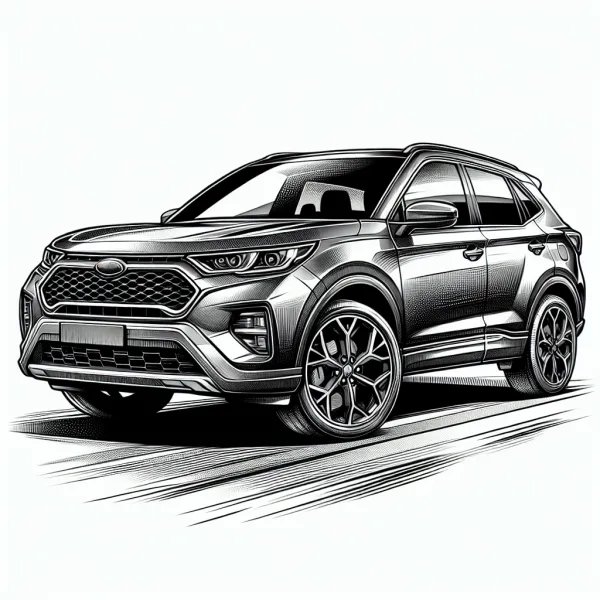Ford Escape/Kuga 1.5L EcoBoost (2020+): A Mechanic's Unfiltered Review
The Ford Escape/Kuga with the 1.5L EcoBoost engine has been a popular choice for Canadians seeking a compact SUV. But is it a good choice? Let's dive in.
Who is it for? The Escape/Kuga 1.5L EcoBoost targets budget-conscious buyers wanting decent fuel economy and some space. It's suitable for small families, city dwellers, or those needing light cargo capacity. Don't expect a rugged off-roader or a towing champ.
Real-World Fuel Consumption: Forget the advertised numbers. In my experience, expect around 9-11 L/100km in the city and 7-9 L/100km on the highway. Aggressive driving, winter conditions, and carrying heavy loads will push those numbers up. In Canada's harsh winters, expect a noticeable dip in fuel economy.
Common Problems:
- Coolant Leaks: A recurring issue on these engines. Look for white residue near hoses and the water pump. This can lead to overheating and major engine damage if ignored.
- Transmission Issues: Some models have experienced rough shifting, shuddering, and even complete transmission failure. This is a costly repair, so be vigilant during test drives.
- Oil Consumption: Some 1.5L EcoBoosts burn oil excessively. Check the dipstick regularly. Low oil can cause catastrophic engine damage.
- Turbocharger Issues: While less common than coolant leaks, turbo problems can occur. Listen for unusual whistling or a lack of power.
Maintenance Costs: Routine maintenance is relatively affordable. Oil changes cost around $80-$120, brake jobs $300-$500, and tire replacements vary depending on the tires you choose. The timing chain is supposed to last the life of the engine, but replacements, if needed, are expensive. Be prepared for coolant system repairs, which can range from a few hundred to over a thousand dollars depending on the severity.
Hidden Costs: Some repairs require specialized tools, which some smaller shops might not have. The engine uses synthetic oil, which is more expensive than conventional oil. Factor these into your budget.
Overall Reliability: The 1.5L EcoBoost isn't the most reliable engine Ford has made. While not every engine will have problems, the potential for coolant leaks, transmission issues, and oil consumption makes it a risky choice. I've seen too many of these in my shop with serious issues.
Total Cost of Ownership: Considering fuel, maintenance, potential repairs, and insurance, the Escape/Kuga 1.5L EcoBoost can be moderately expensive to own, especially if you encounter major problems. It's not a cheap car to run in the long term.
Resale Value: Escapes/Kugas generally hold their value reasonably well, but models with the 1.5L EcoBoost might depreciate faster due to reliability concerns. Check online marketplaces and used car listings to get an idea of current market prices.
Tips for Prospective Buyers:
- Get a pre-purchase inspection from a trusted mechanic who knows about these engines.
- Check for coolant leaks, transmission problems, and signs of oil consumption.
- Avoid buying a used model without a complete service history.
- If you find any issues during the test drive, walk away.
Alternatives: Consider the Mazda CX-5, Toyota RAV4, or Honda CR-V for better reliability, albeit at a slightly higher price. If you need more space, a Hyundai Santa Fe or Kia Sorento might be a better fit.
Conclusion: The Ford Escape/Kuga 1.5L EcoBoost has its appeal, but its reliability issues are a serious concern. If you're on a tight budget, proceed with caution and get a thorough inspection. If you can afford it, I'd recommend exploring more reliable alternatives.
